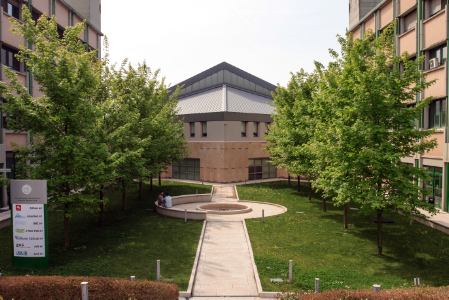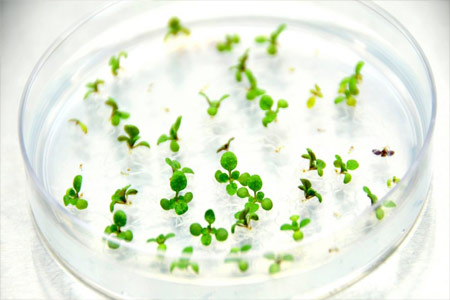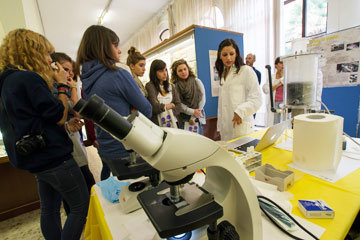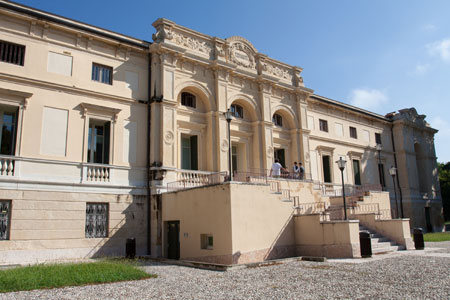Course Not running, not visible
Learning outcomes
Module: Modulo Microbiologia ambientale (teoria)
-------
The main objective of the Applied and Environmental Microbiology Course is to give to the students the principles and methods for the comprehension of the microbial biotrasformation/biodegradation phenomena of organic and inorganic contaminants in environmental polluted matrices, with special attention for the soil matrix. Moreover different approaches for the bioremediation of polluted sites are analysed.
Module: Modulo Microbiologia alimentare (teoria)
-------
--
Module: Modulo Microbiologia alimentare (laboratorio)
-------
--
Module: Modulo Microbiologia ambientale (laboratorio)
-------
The main objective of the laboratory part is to give to the students the fundamentals for the characterization of a microbial community in an environmental matrix polluted with metals or organic compounds throughout the application of culture-dependent and culture-indipendent approaches.
Syllabus
Module: Modulo Microbiologia ambientale (teoria)
-------
1. General considerations on microbial biotransformation and biodegradation principles – 2. Methods for the evaluation of the biodegradability – 3. Bioavailability and bioaccessibility – 4. Microbial degradation of aliphatic and aromatic hydrocarbons in aerobic conditions – 5. Microbial degradation of aliphatic and aromatic hydrocarbons in anaerobic conditions – 6. Biotransformation of polychlorobiphenyls (PCBs) – 7. Microbial degradation of xenobiotic compounds – 8. Genetics of the microbial transformation of PHA – 9. Methods for the determination of hydrocarbons biodegradation in soil – 10. Methods for the isolation of PAH transforming microrganisms and for the determination of metabolic intermediates in the PAHs degradation pathways – 11. Bioaugmentation protocols – 12. Methods for the analysis of microbial communities in environmental matrices (soil): culture-dependent techniques – 13. Methods for the analysis of microbial communities in environmental matrices (soil): culture-independent techniques – 14. Potentials and limits of the PCR-DGGE technique – 15. Potentials and limits of ARDRA technique – 16. Bacterial transformation of metals and metalloids – 17. Genetics of bacterial transformation of metals – 18. Biosurfactants and metallothionines – 19. Bioremediation of contaminated sites: bioremediation protocols
Module: Modulo Microbiologia alimentare (teoria)
-------
--
Module: Modulo Microbiologia alimentare (laboratorio)
-------
--
Module: Modulo Microbiologia ambientale (laboratorio)
-------
Characterization of a bacterial community from soils polluted either with Polyciclic Aromatic Hydrocarbons (PAHs) or inorganic and organic Pb compounds (in particular tetraethyllead).
The characterization will be carried out with both a culture-dependent and culture-independent approach starting both from the soil matrix and from bacterial strains previously isolated from the matrix.
PCR-DGGE (Denaturing Gradient Gel Electrophoresis) analysis will be performed starting from the soil samples. On the other hand the bacterial strains will be analysed in axenic culture for their capability to transform the inorganic forms of Pb, tetraethyllead and PAHs. Moreover a genotypic analysis on metal resistance genes and on genes involved in PAH degradation will be carried out both on soil matrix and on the bacterial strains.
Assessment methods and criteria
Module: Modulo Microbiologia ambientale (teoria)
-------
written exam
Module: Modulo Microbiologia alimentare (teoria)
-------
--
Module: Modulo Microbiologia alimentare (laboratorio)
-------
--
Module: Modulo Microbiologia ambientale (laboratorio)
-------
Written Report about the results obtained







